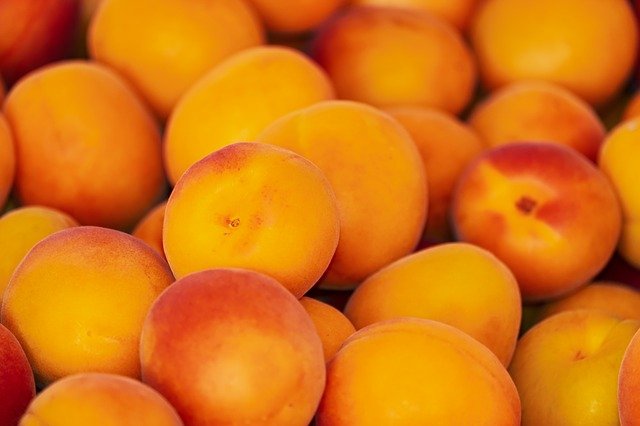
Apricots are a great summer fruit, but many people don’t know if they can refrigerate apricots.
If you love apricots, you might also ask the same question. In this post, I will discuss whether or not you can store apricots in the fridge.
So, can you refrigerate apricots?
The answer is yes! You can store apricots in the fridge for up to one week after you purchase them especially if they are ripe. However, if you want to eat your apricots sooner, then keep storing them at room temperature.
Apricots are also a great addition to salads and other dishes during the spring and summer months.
How long do apricots last in the fridge?
Apricots are best when fresh, but they can last up to one week in the fridge when properly stored.
Ripe apricots can be kept at room temperature for 2-3 days. If you want them to last even longer, then place them in a plastic storage container and keep them in the fridge.
Apricots can be placed in loose or in a plastic storage bag.
If you want to slow down the ripening process, then place your apricots into a paper bag- not plastic!
You will know that your apricots are ripe when they become fragrant and yield slightly to pressure.
Can you refrigerate fresh apricots?
You can refrigerate fresh apricots but it is better to refrigerate apricots if they are ripe. When kept at room temperature apricots are best for 2-3 days.
If you have ripe apricots that aren’t quite as sweet or flavorful as they could be, then place them in a paper bag overnight. This will help the fruit to concentrate its sugar and flavor.
If you don’t plan on using your apricots for a few days, then place them in the fridge to keep them fresh.
You can also freeze ripe apricots. To do so, simply wash your fruits, slice them in half or separate the pit from the flesh, and place the pieces on a tray in the freezer.
Once frozen, place the pieces in a plastic container and back into the freezer for up to eight months.
You can also use your apricot skin or pit as an ingredient in homemade beauty products such as face masks and scrubs.
This is because apricot seed oil contains vitamin A, vitamin C, and vitamin E. The oil can be used to keep your skin from becoming dry or rough by moisturizing it with important nutrients.
How do you store fresh apricots?
Apricots can be stored at room temperature or in the fridge. If you want fresh apricots for a few days, keep them at room temperature.
If you want to hold onto ripe apricots for up to a week, then store them in the fridge!
Store ripe and unripe apricots separately and in a paper bag if they are ripe.
Place them in a plastic storage container and keep them in the fridge to hold onto them for up to a week.
Should you refrigerate dried apricots?
Refrigerating dried apricots is optional. But if you want to prolong their flavor and aroma, you can store them in the fridge for about 6-12 months.
If you want to eat your dried apricots sooner, then keep them at room temperature instead.
Can you freeze fresh apricots?
Yes! You can freeze apricots. What you need to do is to wash them, slice them in half or separate the pit from the flesh, and place them on a tray.
Once frozen, transfer to a plastic container or bag for up to eight months of freezer storage.
Can you keep ripe apricots on the counter for a few days?
Ripe apricots can be kept at room temperature for 2-3 days. But if you want them to last even longer, then place them in a plastic storage container and keep them in the fridge.
If you want to slow down the ripening process, then place your apricots into a paper bag instead of a plastic container.
When kept at room temperature apricots are best for 2-3 days.
Final Thoughts
Refrigerating is a good way to preserve apricots. However, you do not need to refrigerate them if you plan to consume them later.
Ripe apricots can be kept for a few days on the counter so there is nothing to worry about.
They will last much longer if placed in the refrigerator though.
Apricots also freeze well and can last up to a year frozen. The ripeness process of apricot is slowed down when it is kept in a paper bag instead of plastic.
Thank you for reading. I hope that this article was informative and enjoyable!
If you want to learn more about refrigerating foods, do not hesitate to visit my guide.
